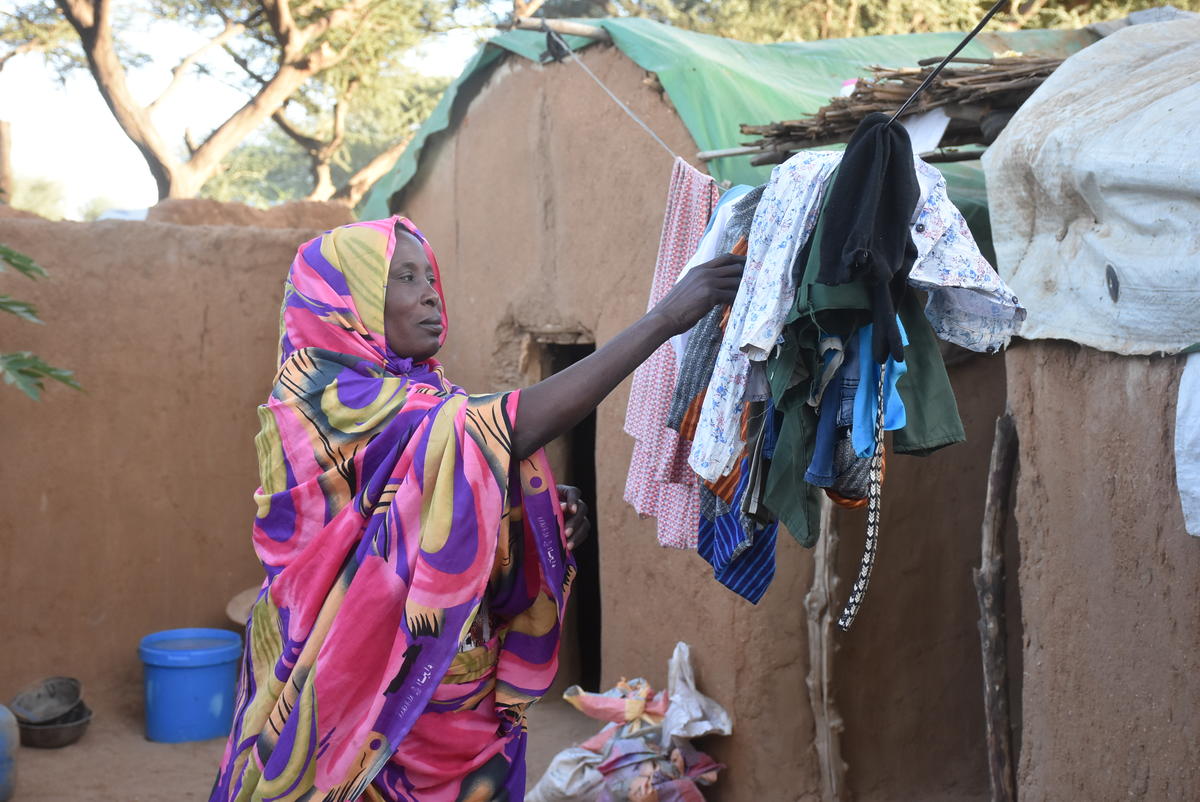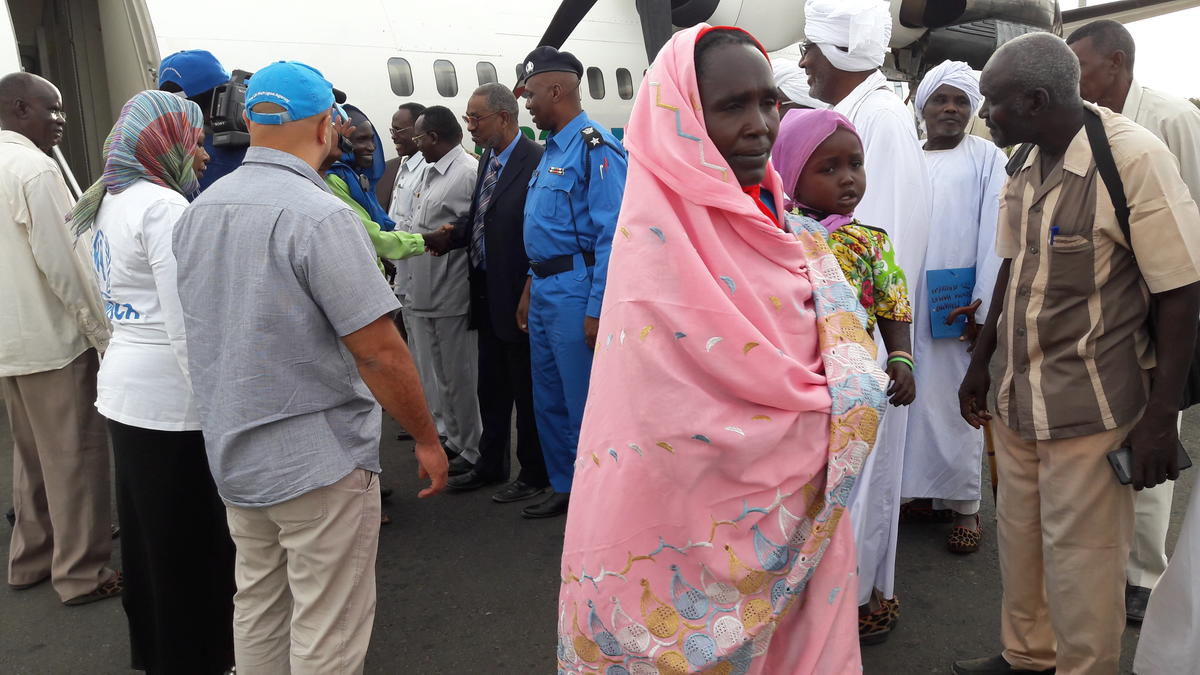Chad/Darfur: displacement continues
Chad/Darfur: displacement continues
Displacement is continuing along the volatile Chad-Sudan border, with recent refugee arrivals from Darfur as well as thousands of Chadians being forced to flee ongoing violence. This morning, UNHCR staff in eastern Chad began moving the first of some 1,500 newly-arrived Darfur refugees away from the Sudanese border to our camp at Kounoungou, near the Chadian town of Guéréda. These Darfurians fled a bloody October 29 attack on Jebel Moon in West Darfur which left many dead and wounded, including two dozen children.
The transfer from the border will likely be done in two stages. About half of the refugees will be moved within the next several days. Then, after about a week, a second round of transfers will take place for refugees who have asked for additional time to wait for family members who have not yet arrived, or to try to return to their villages in an attempt to harvest as much as they can before returning to Chad.
UNHCR is concerned that there may be combatants among the new arrivals, so we have informed the refugees of the humanitarian and civilian character of our refugee camps. We also requested the refugees' assistance in identifying unaccompanied children before the transfer. It was also agreed with the refugees that vulnerable groups will be given priority for transport in the first convoy.
These new arrivals, who are of the Djabal ethnicity, are currently in the Seneit area. They will be registered and undergo a medical screening before being brought to their new homes in Kounoungou, one of 12 camps for some 218,000 Sudanese refugees in eastern Chad. Kounoungou camp currently has some 13,000 people who fled hostilities in Darfur.
Meanwhile, we are still receiving reports of bloody attacks on villages in south-eastern Chad near the border with Darfur. On Wednesday, the village of Samassin, 15 km south-west of Kerfi, was attacked. One villager was reportedly killed and several wounded. UNHCR has so far received reports of 23 villages being attacked since November 4, and at least 20 others that were abandoned by residents who feared attacks were imminent. Since the latest round of violence began on November 4, we estimate at least 12,000 Chadians have fled their villages - about 7,000 of them are now gathered in Habile, near the town of Koukou. Habile already had some 3,500 displaced Chadians. Another 5,000 recently-displaced Chadians are encamped on the outskirts of Goz Beida, and many others are staying with relatives or friends in the town itself. Altogether, we estimate some 75,000 Chadians have been forced to flee their villages over the past year - 12,000 of them since the latest series of attacks began on November 4.
Some of the internally displaced are trying to quickly get back to their villages to salvage grain and other belongings. But several of them have been attacked, killed or wounded in so doing. On several occasions, returnees have been seriously attacked or even killed upon return.
Information from survivors of the recent attacks south of Goz Beida show a pattern over the past 12 days in which villages were surrounded by armed men - some in military uniforms - on horses and camels. In some cases, the attackers also used rocket propelled grenades, witnesses said. Villages have been burned to the ground and inhabitants gunned down while trying to flee. Survivors describe their attackers as Arab nomad tribes, both Chadians and Sudanese. The testimonies are harrowing, including reports of babies, children, the elderly and infirm being burned alive in their houses because they were unable to flee. In one village, seven children were burned alive, according to residents. In another, a paralyzed man was trapped in his home and burned to death. The survivors are in a state of shock.
In Goz Beida hospital, which is spilling over with wounded, three male patients who said they tried to return to their fields near Koloi and Tamadjour were attacked by Arabs who gouged out their eyes with bayonets.
Of the 218,000 refugees from Darfur in 12 UNHCR camps in eastern Chad, 15,000 are in Djabal camp and 18,000 in Goz Amir camp in the Goz Beida region. Chad is also hosting 46,000 refugees from the Central African Republic in the south.








